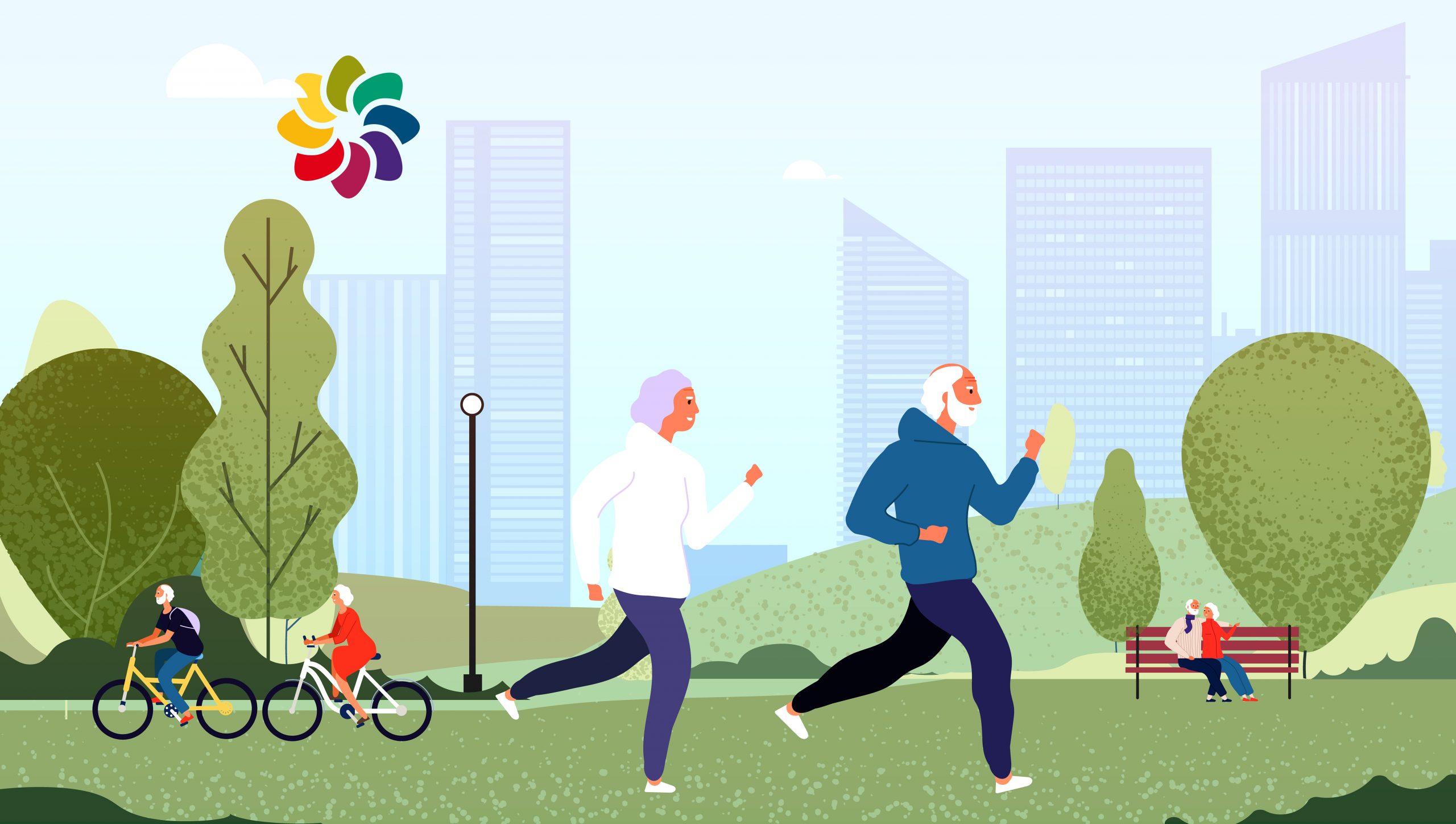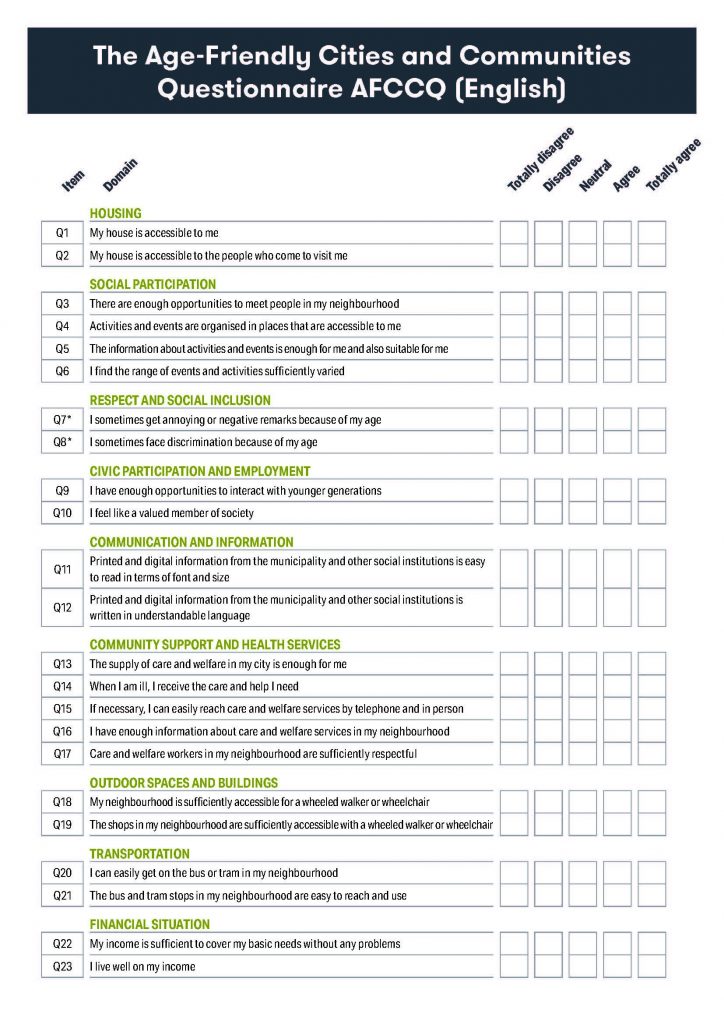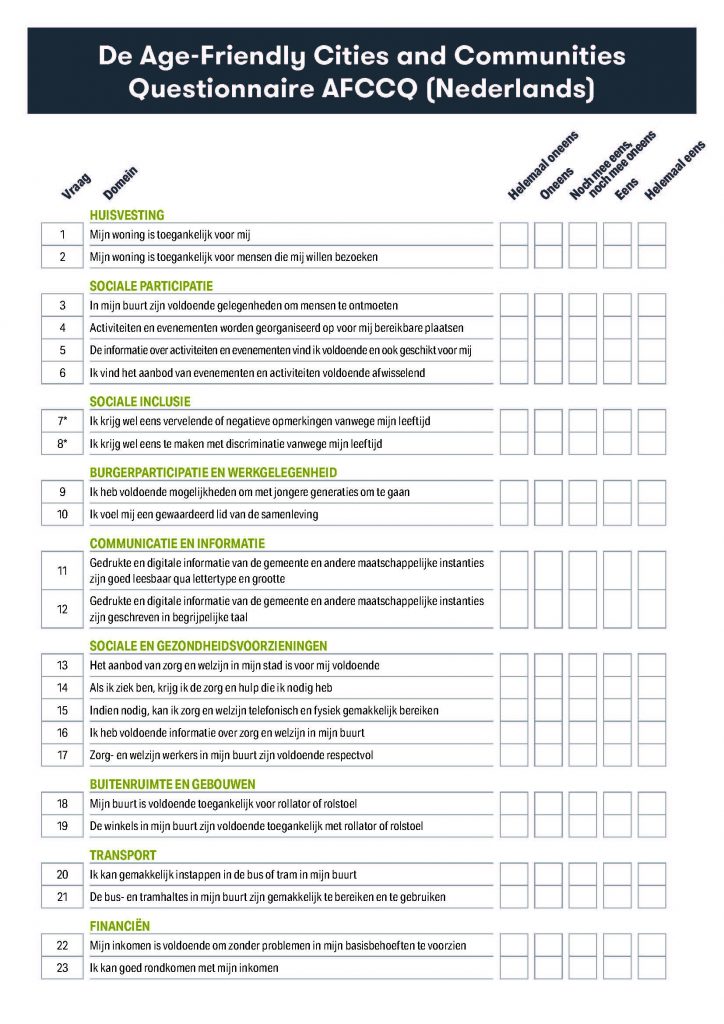AFEdemy co-developer of The Age-Friendly Cities and Communities Questionnaire
In early 2020, the municipality of The Hague awarded the consortium consisting of The Hague University of Applied Sciences, Hulsebosch Advies and AFEdemy to develop a questionnaire and run a representative survey on the perceived age-friendliness of the city among its older citizens. Part of this survey was the development of a validated questionnaire, which allows for an assessment of the perceived age-friendliness. In order to do justice to the superdiversity of the population of The Hague, the municipality also wanted a representative number of older Western and non-Western immigrants to be included in the sample.
The consortium started to review scientific and public sources to check whether a default questionnaire was already available. The search delivered several examples of questionnaires that either lacked transparency on the development and validation or did not measure the construct of age-friendliness as a whole. This made the consortium decide to develop and validate a validated questionnaire, coined the Age-Friendly Cities and Communities Questionnaire.
In order to develop the questionnaire, the consortium made use of the Consensus-based Standards for selection of health Measurement Instruments (COSMIN). The development consisted of the following four phases: Development, Initial validation, Psychometric validation and Instrument translation. See figure below.
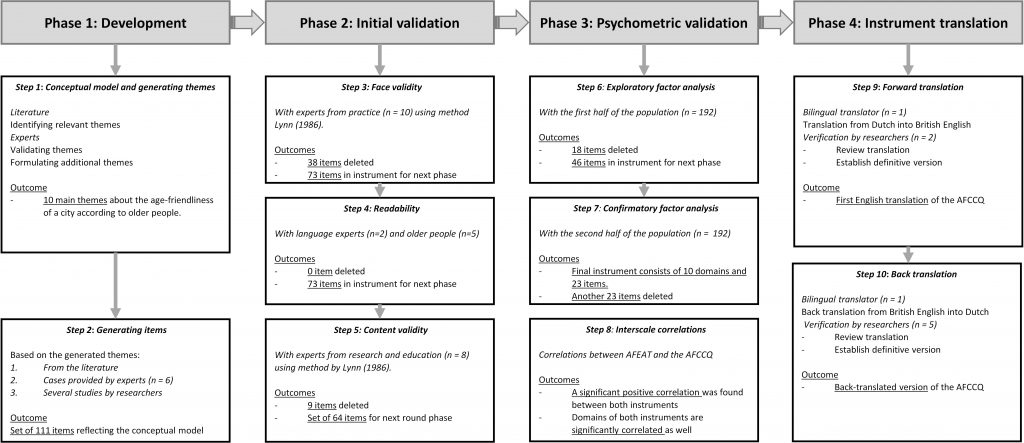
The theoretical basis of the questionnaire was the Global Age-friendly Cities Guide, published by the World Health Organization in 2007, and its accompanying Checklist. This guide published a model of age-friendly cities and communities, consisting of eight domains: outdoor spaces and buildings; transportation; housing; social participation; respect and social inclusion; civic participation and employment; communication and information; and community support and health services. The features of the Checklist formed the foundation of the items for the questionnaire. Additionally, questions on technology and the financial situation were added based on the literature review.
After several rounds of validation by different panels of regional, national and international experts and checks on the readability, a questionnaire of 64 items remained that was launched as online survey or questions for a telephone enquiry. On top of the 64 questions on age-friendliness, an extra set of demographic and policy requested questions were added. In the months June-September 2020, a number of 384 respondents of 60 years and over filled out the questionnaire. Some characteristics: 51% female, 74.4 is the average age, 59.9% home owners, 48.4% living with chronic conditions and 14.6% using a wheeled walker or wheelchair.
Based on the responses, the consortium performed a Confirmatory Factor Analysis as part of Step 7 of the COSMIN protocol (see figure below) to check the relevance and internal consistency of the questions. This finally led to 23 remaining questions that are valid to measure the entire construct of an age-friendly city. The 23 questions have been translated from Dutch into English.
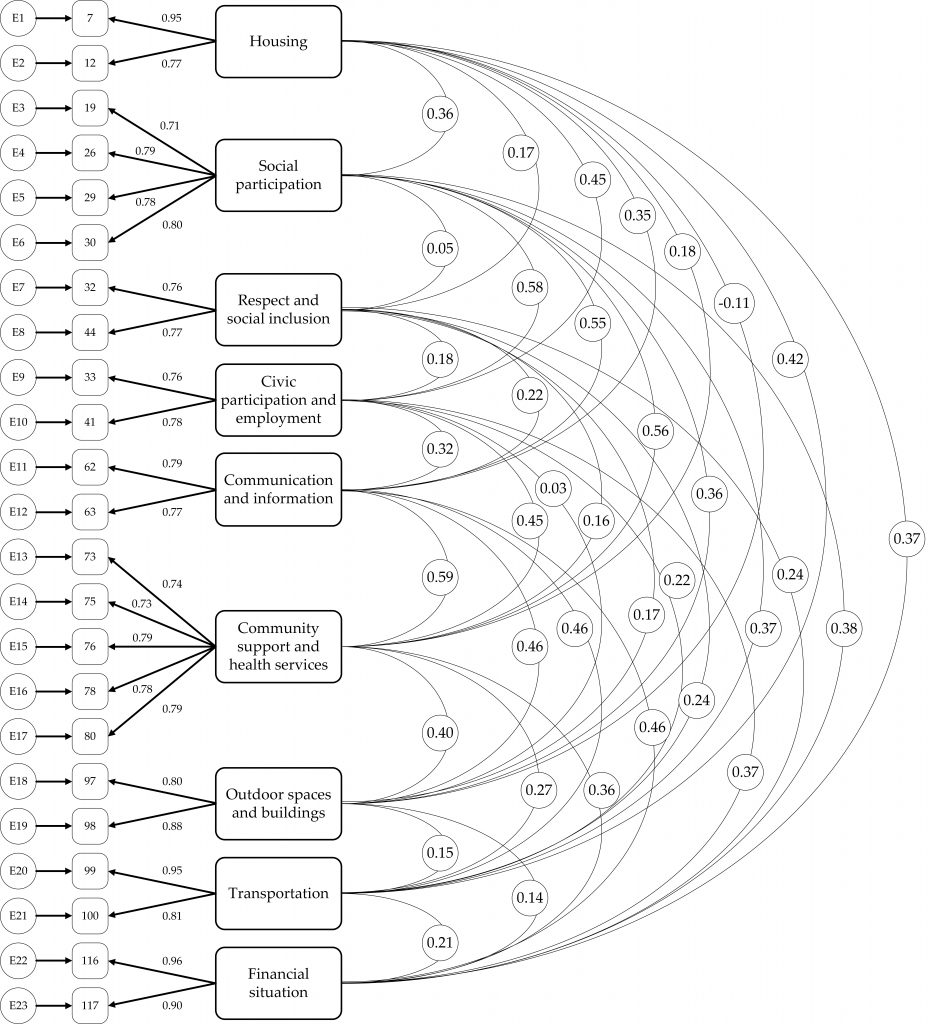
The Age-Friendly Cities and Communities Questionnaire measures the views of older adults on the eight domains already defined by the WHO and on a relevant ninth domain, namely their own financial situation. The questionnaire is open for use on every geographical level and by every public authority, civil society organisation or any other who is interested. It might be necessary to culturally validate the questionnaire.
For further reading and contacts: https://www.mdpi.com/1660-4601/17/18/6867/pdf
The Age-Friendly Cities and Communities Questionnaire (AFCCQ) in English
All Questions of the AFCCQ Can Be Answered on a 5-Point Likert-Scale Ranging from: −2 (Totally Disagree); −1 (Disagree); 0 (Neutral); 1 (Agree); 2 (Totally Agree).
Q7 and Q8 should be recorded in the opposite direction.
Housing
Q1 My house is accessible to me.
Q2 My house is accessible to the people who come to visit me.
Social participation
Q3 There are enough opportunities to meet people in my neighbourhood.
Q4 Activities and events are organised in places that are accessible to me.
Q5 The information about activities and events is enough for me and also suitable for me.
Q6 I find the range of events and activities sufficiently varied.
Respect and Social inclusion
Q7 * I sometimes get annoying or negative remarks because of my age.
Q8 * I sometimes face discrimination because of my age.
Civic participation and employment
Q9 I have enough opportunities to interact with younger generations.
Q10 I feel like a valued member of society.
Communication and information
Q11 Printed and digital information from the municipality and other social institutions is easy to read in terms of font and size.
Q12 Printed and digital information from the municipality and other social institutions is written in understandable language.
Community support and health services
Q13 The supply of care and welfare in my city is enough for me.
Q14 When I am ill, I receive the care and help I need.
Q15 If necessary, I can easily reach care and welfare services by telephone and in person.
Q16 I have enough information about care and welfare services in my neighbourhood.
Q17 Care and welfare workers in my neighbourhood are sufficiently respectful.
Outdoor spaces and buildings
Q18 My neighbourhood is sufficiently accessible for a wheeled walker or wheelchair.
Q19 The shops in my neighbourhood are sufficiently accessible with a wheeled walker or wheelchair.
Transportation
Q20 I can easily get on the bus or tram in my neighbourhood.
Q21 The bus and tram stops in my neighbourhood are easy to reach and use.
Financial situation
Q22 My income is sufficient to cover my basic needs without any problems.
Q23 I live well on my income
Links to the questionnaires in Dutch and English:
Reference: Dikken, J. van den Hoven, R.F.M., van Staalduinen, W.H., Hulsebosch-Janssen, L.M.T., van Hoof, J. (2020) How older people experience the age-friendliness of their city: Development of the Age-Friendly Cities and Communities Questionnaire. International Journal of Environmental Research and Public Health 2020;17(18):6867 doi: 10.3390/ijerph17186867

